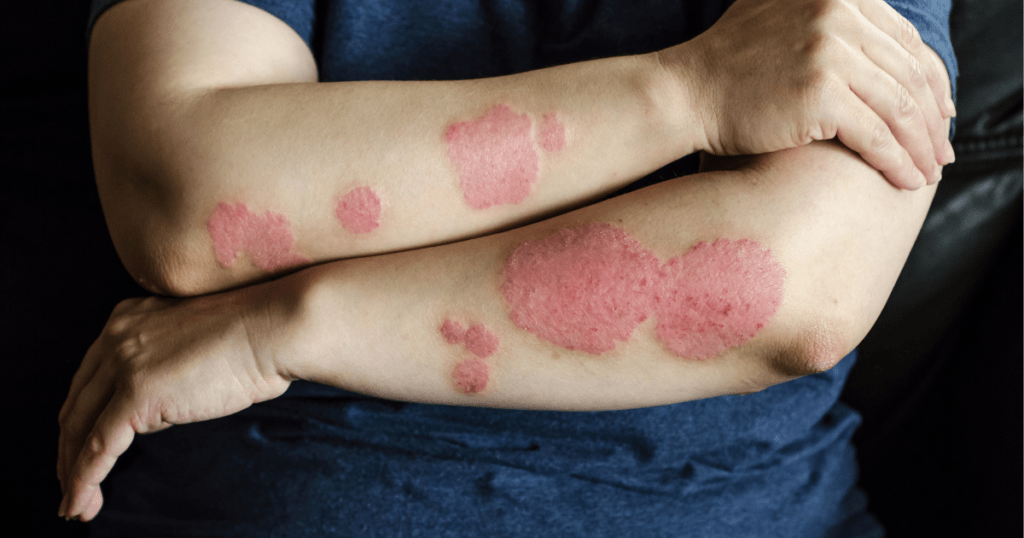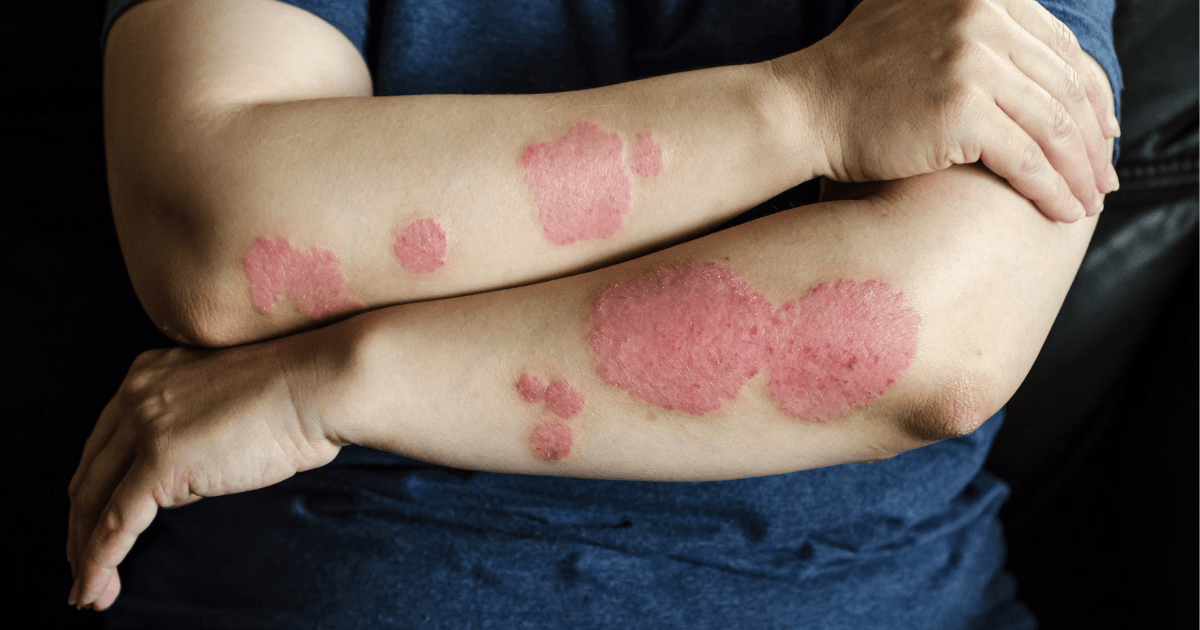Psoriasis Management: The Ultimate Guide to Clear, Beautiful Skin
Discover effective strategies for managing psoriasis and regaining your skin’s natural beauty
Psoriasis causes the development of itchy, scaly patches, most frequently appearing on areas like the knees, elbows, trunk, and scalp. It is classified as an autoimmune disorder, resulting in skin inflammation and the formation of thick, scaled areas known as plaques. Unfortunately, it is a persistent condition with no known cure.
This common, enduring ailment can be painful, disrupt sleep, and impair concentration. It typically follows a cycle, with intermittent flare-ups lasting for weeks or months before subsiding. Various factors, such as infections, skin injuries, medications, and genetic predisposition, can trigger psoriasis.

Treatment options are available to manage symptoms, lifestyle adjustments, and coping strategies for improving one’s quality of life. The manifestations of psoriasis can vary among individuals. It can be in the form of a patchy rash with different appearances, including dandruff-like scaling, purplish-gray scales on brown or Black skin, and pink or red with silver scales on white skin. Additional symptoms encompass dry, cracked skin that may bleed, itching, burning, soreness, and cyclic rashes that flare up and recede.
Types of Psoriasis
It can be in various forms, each characterized by specific signs and symptoms:
Nail Psoriasis: Affects fingernails and toenails, leading to pitting, abnormal nail growth, and discoloration, sometimes causing nails to separate from the nail bed.
Pustular Psoriasis: A rare type characterized by pus-filled blisters in well-defined patches, occurring either widely or on small areas, such as the palms or soles.
Guttate Psoriasis: Typically seen in young adults and children. Bacterial infections often trigger it, featuring small, drop-shaped scaling spots on the trunk, arms, or legs.
Inverse Psoriasis: Mainly affects skin folds in the groin, buttocks, and breasts, leading to smooth patches of inflamed skin that worsen with friction and sweating, fungal infections can trigger this type.
Plaque Psoriasis: The most common type, it results in dry, itchy, raised skin patches (plaques) covered with scales, often appearing on the elbows, knees, lower back, and scalp.
Erythrodermic Psoriasis: The least common form, it can cover the entire body with peeling, intensely itchy or burning rashes, and may be short-lived or chronic.
Causes
Researchers do not fully understand the exact cause of psoriasis, but they believe it involves an immune system dysfunction that accelerates skin cell growth. While genetics and environmental factors are believed to play roles, it is not contagious.
What Triggers Psoriasis
Common triggers for psoriasis include infections (e.g., strep throat), adverse weather conditions (especially cold and dry weather), skin injuries (cuts, scrapes, or burns). Smoking, heavy alcohol consumption can also trigger psoriasis . Certain medications (e.g., lithium, high blood pressure drugs, and antimalarial drugs), and abrupt discontinuation of oral or injected corticosteroids.
It can affect various body parts, including elbows, knees, face, scalp, fingernails, toenails, genitals, lower back, palms, and feet. Its extent varies from localized patches to widespread coverage on the body.
Risk Factors
Risk factors for developing psoriasis include a family history of the condition, a higher risk if both parents have it, and smoking, which can increase the severity of symptoms.
Complications
It can lead to complications such as psoriatic arthritis, temporary skin color changes, eye conditions, obesity, type 2 diabetes, high blood pressure. It can also contribute to cardiovascular disease, other autoimmune diseases, and mental health conditions like low self-esteem and depression.
Diagnosis
Diagnosis typically involves a physical examination by a healthcare provider or dermatologist, along with a review of symptoms and medical history. A skin biopsy may be performed in some cases to confirm the diagnosis.
Psoriasis management
Psoriasis management involves various treatment options, including steroid creams, moisturizers, medication to slow skin cell production. Patients also apply medicated lotions or shampoos, vitamin D3 ointment, vitamin A or retinoid creams, and other systemic treatments. Diet can also play a role in managing symptoms. It is found that certain foods can exacerbate inflammation while others can help alleviate it. A balanced, whole-food diet, such as the Mediterranean diet, is generally recommended for individuals with psoriasis. However, there is limited evidence supporting the use of vitamins or supplements to ease its symptoms. It’s advisable to consult with a healthcare professional or registered dietitian for personalized guidance on dietary choices and supplementation.
Sources:
Mayo Clinic. Psoriasis. (https://www.mayoclinic.org/diseases-conditions/psoriasis/symptoms-causes/syc-20355840?sscid=91k7_k4ju8&). Accessed September 12, 2023
Cleveland Clinic. Psoriasis. (https://my.clevelandclinic.org/health/diseases/6866-psoriasis). Accessed September 11, 2023
Wesdock, M. Psoriasis Diet: Foods to Eat and Avoid If You Have Psoriasis. (https://www.hopkinsmedicine.org/health/conditions-and-diseases/psoriasis-diet-foods-to-eat-and-avoid-if-you-have-psoriasis). Accessed September 13, 2023
Also read:
Understanding Nummular Eczema: Causes, Symptoms, and Triggers
Demystifying Acne: Causes, Types, and Triggers
Sunburn Prevention Tips: Protecting Your Skin from Harmful UV Rays
Category
- Health Issues (72)
- Healthy Diet (48)
- Herbs for Health (11)
- Mental Health (33)
- Skin Care (20)

